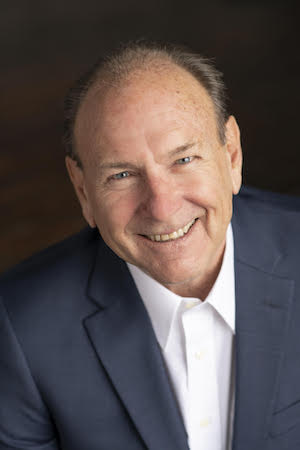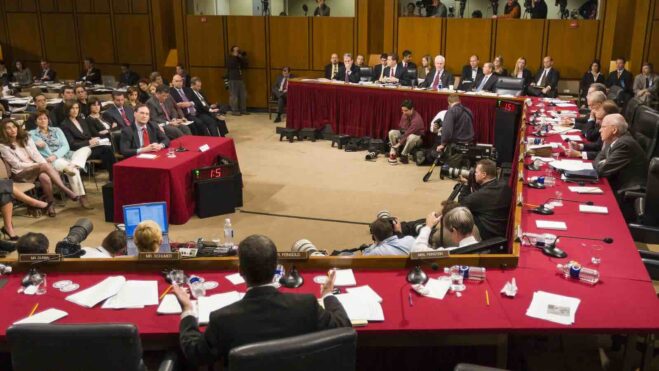Schuetz: It Is Time Again To Talk About Captured Gaming Regulatory Agencies
‘If the regulatory assets of an industry begin to be questioned as captured by observers, that is not a good sign for the industry’
4 min

I spent many years in the Las Vegas casino industry, and regardless of my position, I always seemed to be involved in marketing. One of the truisms I often heard in Vegas back in the day was that if a marketing program worked last year, it probably would not work next year. So, too, it was suggested that if it worked five years in the past, it was time to try it again.
I mention this because it is time for me to again address the topic of capture in the context of gaming regulatory agencies. Yes, I know; you have probably heard me rant about this topic over the last decade. I will repeat it again here because it is damned important. It is also relevant.
I like to think of myself as an economist. I consider myself an economist because I spent about 11 years in college studying economics. I have also taught economics at the university level in several places. One of the more interesting wake-up calls in my life was when I discovered that I made considerably more dealing dice while in college than I did as a college professor teaching economics. This led me back to the casinos.

That was not an easy decision for my dear departed mother was embarrassed to tell her friends that I was a casino executive, so she referred to me as a college professor for at least 20 years after I had quit being a college professor.
One of the first things that a good economist understands is that if one is to line up all of the economists in the world, end to end, they would never reach a decision.
There is one possible exception to this rule, and that is when economists address the issue of regulatory capture. One can be a classical economist, a Marxist, a neoclassical, a Keynesian, or from the deepest, darkest ranges of conservative thought – and the conclusion is not if capture will occur, but when.
My favorite capture quote comes from John Kenneth Galbraith, an economist who could actually write intelligible sentences and who was an advisor to President John F. Kennedy. Dr. Galbraith suggested:
…regulatory bodies, like the people who comprise them, have a marked life cycle. In youth they are vigorous, aggressive, evangelistic, and even intolerant. Later they mellow, and in old age — after a matter of ten or fifteen years — they become, with some exceptions, either an arm of the industry they are regulating or senile.
Not only does the economic profession cast a pall over regulatory agencies regarding the apparent inevitability of them becoming captured, but there is also concern about them based on their structure, for you see, regulatory agencies are monopolies.
One does not need to be a trained economist to understand the challenges of monopolies. In short, they generally price higher than what is found in competitive markets, they offer poorer service levels, and they are slow to innovate. I have recently addressed that regulatory agencies need to explicitly address that they are, in fact, monopolies and they need work to develop safeguards against acting like it.
I bring this up because since the announcement regarding my involvement in American Bettors’ Voice was announced, I have participated in a number of calls with journalists who represent major national and international news outlets. Several have asked me if I believe that the regulatory apparatus for the online sports betting industry has been captured.
I generally responded to these queries by acknowledging that capture is always a threat. I have also published opinions that address the curious behavior of select regulatory agencies.
Stress tests and self-regulation
I mention this only to suggest that if the regulatory assets of an industry begin to be questioned as captured by observers, that is not a good sign for the industry. When the public loses faith in the regulators, it does not always end well for the industry.
More importantly, however, I think a lot of what is happening in the regulation of the online sports betting industry is a result of a rush to open with regulatory entities that are neither experienced in sports betting nor the distribution of gaming products via the internet. In short, I am concerned that our regulatory assets are being challenged by too much too soon.
There are some exceptions. I believe that it is generally understood that I am a fanboy of the Massachusetts Gaming Commission. What I find attractive about the MGC is their willingness to ask questions, and it does appear that the gaming operators are not overly eager about answering those questions.
I also believe that the MGC’s attitude of getting to the bottom of how things work in the online sports betting segment is critical, for the industry does not seem too interested in self-regulation.
Self-regulation is a powerful tool to avoid onerous regulatory intervention. Unfortunately, it seems that the egos within the online betting operators are such that they are more adept at getting into pissing matches with one another than working to address common challenges and problems. Without this segment getting real and working to resolve some of the challenges they are facing from within, the regulators will step in and provide solutions that the operators probably will not like. Strategically, for the industry, to ignore self-regulation is a fool’s errand.
One need only look across the pond to the UK to see what happens when an industry behaves like a bunch of unfettered free agents. The regulators can be driven to provide some pretty ugly solutions.
The industry might want to follow the important advice from a famous person also from across the pond, that being Winston Churchill: “Those that fail to learn from history are doomed to repeat it.” It seems that here in the good old U.S. of A, the industry is hell-bent on repeating the UK regulatory experience. I doubt few will like the result.
If you are troubled by what I say, you may not need to worry too much, for after all, as Nassim Nicholas Taleb stated in a 2009 Washington Post interview: “Years ago, I noticed one thing about economics, and that is that economists don’t get anything right.”
—
Richard Schuetz entered the gaming industry working nights as a blackjack and dice dealer while attending college and has since served in many capacities within the industry, including operations, finance, and marketing. He has held senior executive positions up to and including CEO in jurisdictions across the United States, including the gaming markets of Las Vegas, Atlantic City, Reno/Tahoe, Laughlin, Minnesota, Mississippi, and Louisiana. In addition, he has consulted and taught around the globe and served as a member of the California Gambling Control Commission and executive director of the Bermuda Casino Gaming Commission. He also publishes extensively on gaming, gaming regulation, diversity, and gaming history. Schuetz is the CEO American Bettors’ Voice, a non-profit organization dedicated to giving sports bettors a seat at the table.






